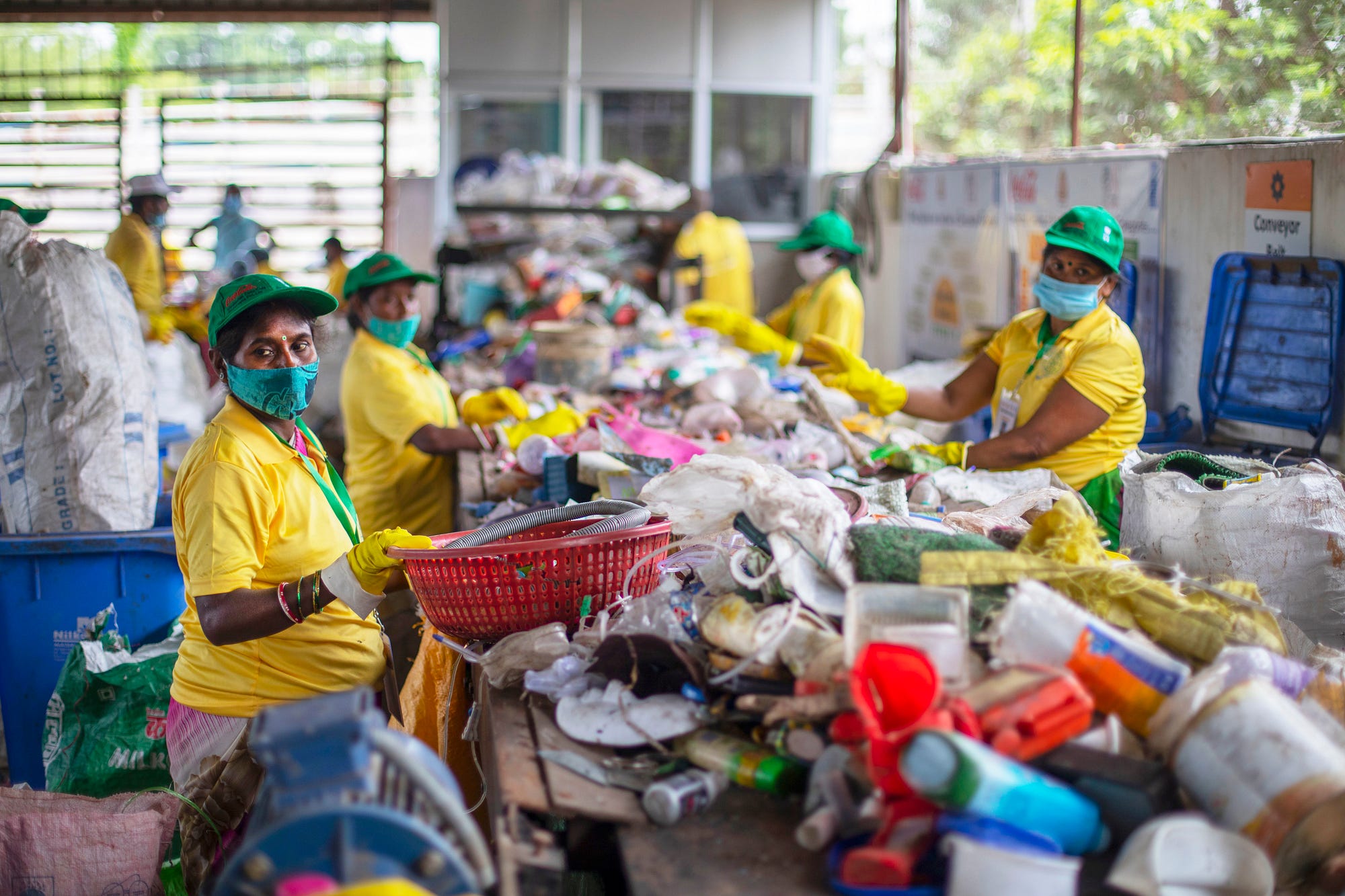India is grappling with a significant plastic waste crisis, generating approximately 26,000 tonnes of plastic waste daily. Projections indicate that plastic consumption could rise to 70.5 million tonnes by 2035, potentially leading to 46 million tonnes of plastic waste annually. However, this challenge presents a substantial economic opportunity. By embracing a circular economy approach, India can transform plastic waste into valuable resources, fostering economic growth and environmental sustainability.
The Economic Potential of Plastic Waste
The plastic recycling industry in India is poised for significant growth. Valued at approximately USD 2.3 billion in 2023, it is projected to expand at a compound annual growth rate (CAGR) of 24%. This growth is driven by increasing demand for recycled plastics in various sectors, including packaging, construction, textiles, and automotive industries. By investing in recycling infrastructure and technologies, India can capitalize on this opportunity to generate revenue and create employment.
Job Creation and Community Empowerment
Transitioning to a circular economy model can lead to substantial job creation. Estimates suggest that moving away from the traditional “take-make-waste” model could generate up to 10 million jobs in India. Initiatives like Tata Power’s Anokha Dhaaga program exemplify this potential. The program has successfully converted 5,000 kilograms of single-use plastic waste into recycled fabric products, generating over ₹20 lakh in fair-trade earnings and empowering women across six centers.
Innovative Initiatives and Government Support
Several innovative initiatives are underway to address plastic waste. In Assam, the government plans to establish five biofuel units to convert plastic waste into biofuel, in partnership with Oil India. This initiative aims to reduce plastic waste and support the central government’s efforts to ban single-use plastics. Additionally, Gujarat’s government is promoting a mass movement against plastic use, installing cloth bag vending machines and plastic bottle crushers across the state to encourage sustainable habits.
Challenges and the Way Forward
Despite these efforts, challenges remain. Currently, only about 8% of plastic waste in India is recycled. To overcome this, there is a need for:
-
Enhanced Infrastructure: Developing formal recycling facilities and waste collection systems.
-
Policy Implementation: Enforcing regulations that promote recycling and discourage single-use plastics.
-
Public Awareness: Educating citizens about the importance of recycling and sustainable practices.
By addressing these areas, India can effectively manage plastic waste and harness its economic potential.

